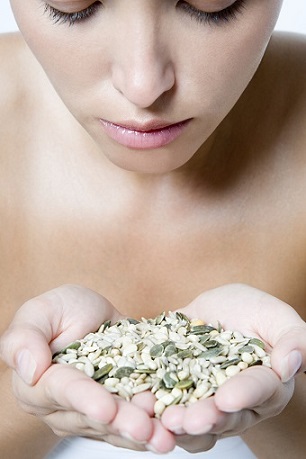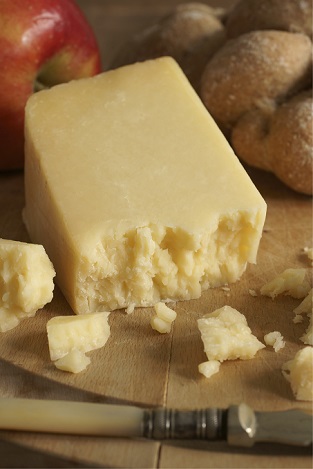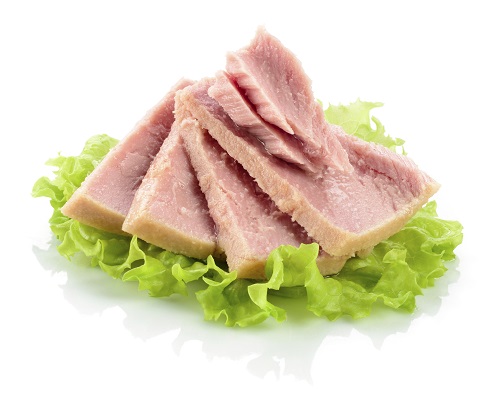If you’ve heard of the condition known as acne, you might also be familiar with l-lysine. The basic facts are that lysine is a type of protein, an amino acid. Lysine is an essential amino acid, meaning that your body is incapable of manufacturing its own supply.
You have to obtain lysine through your diet or you are finished. A semi-essential amino acid is able to be manufactured, but limited under certain circumstances, while a non-essential amino acid is manufactured easily.
All humans eat some lysine but supplemental forms are popular. L-lysine is a bioactive supplemental form, while lysine is the natural form in food which is metabolised into l-lysine. Both work perfectly well, it’s just a technical difference.
So with the introduction done and dealt with, is lysine a good supplement for acne, a revolutionary one, or a completely ineffective one?
The greatness of specific amino acids
For acne, one thing you should never get fooled into believing is that protein is nothing but a muscle nutrient. Nor is it just a muscle nutrient with some bonus metabolism acceleration and weight loss powers.
Protein is one of the most popular nutrients nowadays thanks to fats and carbohydrates both being demonised. You even see grocery store bread (not a food I recommend for acne) boasting of its added protein content, which will supposedly grant you a ripped and lean physique.
It’s true that even the average KFC resident needs more protein, but this trend is distracting everyone from protein’s more obscure roles, including for acne. Each amino acid has its own individual properties, and these can be almost as interesting as different vitamins and minerals. For example, you have…
Isoleucine – an essential amino acid. Heavily favoured by bodybuilders and endurance athletes due its ability to improve stamina and generate energy in muscle cells.
Serine – a non-essential amino acid. Used to manufacture the myelin sheath of brain nerve cells, and therefore vital for cognitive function, intelligence, and quick thinking.
Cysteine – a non-essential amino acid which is particularly effective at slowing hair loss compared to others, and excellent at increasing male fertility.
Tryptophan – an essential amino acid which is the building block for serotonin and melatonin. Without tryptophan you are incapable of sleeping and happiness, a truly grim fate.
For acne, the most important amino acid to calculate and optimise your intake of is glycine, as it’s directly involved in manufacturing collagen and the antioxidant glutathione. But l-lysine is probably the most popular amino acid in the internet acne sphere, and some of the hype is justified.
Lysine deficiency – a cause of weak skin
Firstly, lysine is the third amino acid involved in the genesis of collagen formation, alongside proline and glycine.
The process happens like this: you eat lysine from meat or fish. When absorbed, an enzyme called lysyl hydroxylase converts lysine into hydroxylysine. This conversion takes place with aid from vitamin C, which is why the now uncommon disease of scurvy results in weak and flimsy skin.
The next step is the conversion of the baseline hydroxylysine into structural compounds called allysines; this reaction takes place with help from the lysyl oxidase enzyme. Finally, these allysines are used to create collagen itself, and additionally, the crosslink protein structures that strengthen collagen. Allysine is also used to manufacture the protein elastin, which as you might guess, promotes the skin’s elasticity.
This glorious process occurs with dietary lysine, and by extension l-lysine supplements, but collagen molecules in the skin are constantly breaking down. They need to be recycled and replaced with stronger ones, and the lysine-derived compounds are also recycled and reconstructed.
Read Annihilate Your Acne – learn to prevent acne and stop just treating it!
Interestingly, only 3 to 4% of the amino acids in human collagen cells are lysine. Proline makes up 17%, while glycine makes up 32%. Lysine is so low because much of it is used to create a separate compound, the aforementioned allysine, also referred to as aldehyde.
Meanwhile, proline and glycine are present at the very beginning of collagen formation. They’re the principle ingredients of procollagen, which is like a collagen template that all other strengthening proteins attach themselves to.
Despite not being present immediately though, lysine is still one of the main raw materials for collagen. It doesn’t end there, as lysine can also inhibit collagen-digesting enzymes like collagenase and cathepsin B, by blocking their receptor sites in skin tissue. The body’s destruction of existing collagen slows down significantly, even if the skin is furiously pumping out these enzymes. That’s particularly useful given that chronically stressed people experience far too much degradation of existing collagen (thanks to cortisol).
If your dietary intake of lysine is meagre, then these glorious processes will not take place. Your skin will become weak, more vulnerable to damage, and your acne will heal far more slowly.
Lysine, bringer of eternal peace

Lysine also has a more obscure connection to acne, one that exists only in the realm of the mind – massive stress reduction.
Lysine deficiency has a strong link to stress and anxiety, and in turn, supplements have a strong link to peace and relaxation. It all starts with increased GABA activity. Gamma-aminobutyric acid (GABA) is a relaxing neurotransmitter, a natural nootropic secreted by the brain.
GABA’s general role is to decrease neuron activity in sections of the brain, a good example being its benefits for sleeping soundly. GABA also decreases both alpha and beta brainwaves when necessary, again relaxing your brain.
It’s often said that dietary GABA is incapable of achieving anything, that it doesn’t cross the blood-brain barrier. That appears to be false, because chocolate infused with GABA was once shown to relax students suffering from exam stress extra effectively.
Recommended – the 7 greatest natural topical treatments for acne
However, making GABA inside your brain is still the ultimate path, and lysine is a key ingredient. Lysine manufactures glutamate, and glutamate manufactures lysine. The more lysine is available in your body, the more relaxing GABA is manufactured.
This is then reinforced even further, because lysine can also stimulate benzodiazepine receptors. Benzodiazepines or benzos are pharmaceutical antianxiety drugs. Millions of people take them, but far less known is the mechanism of how they work.
Benzos bind to one specific binding site within the wider GABA receptor complex. There, they stimulate and increase the sensitivity of the whole complex, so that GABA’s sedative and calming activity is enhanced. Lysine can also stimulate the benzodiazepine binding site, and thus once again increase GABA’s activity.
Some anxiety sufferers have even claimed that lysine supplements allow them to slash their benzo dosage by 90%. Nature didn’t create the benzodiazepine binding site in anticipation of a random pharmaceutical drug, so if you think about it, it makes sense that another substance is naturally designed to stimulate it.
A further connection comes from serotonin, as lysine is a receptor antagonist of a specific serotonin receptor called 5-HT4; it prevents serotonin (or 5-HT) molecules from binding to and stimulating the receptor. Importantly for us, this particular serotonin receptor can elevate the stress and anxiety response in humans.
Meanwhile, lysine doesn’t block the regular serotonin receptors responsible for happiness and pleasure. Lysine deficiency is also known to reduce levels of serotonin in the bloodstream, and it is thus speculated to be involved with manufacturing it (although tryptophan is far more important overall).
Several other amino acids have powers to regulate neurotransmitters, but lysine has unique abilities.
Are l-lysine supplements worth it?
But those are only the acne benefits on paper – the real world is a different story. For example, if your lysine intake is already perfect, then will taking more increase your collagen levels further? Will they calm your mind further?
The human brain needs GABA to be elevated at certain times, such as midnight, and lower at others, such as early morning when you’re primed to work hard. GABA is a tightly regulated neurotransmitter, so it’s unknown whether piling on more and more lysine will actually increase its activity. Then again, there’s so many environmental chemicals and additives messing with our neurotransmitters today that anything is possible.
The collagen is more promising. You only synthesise the required amounts of collagen itself, but lysine also strengthens the collagen structures with cross links. Maybe taking your lysine intake above the norm will give your skin extra strength and density.
Why zinc supplements can reduce acne by 49.8%
There’s also potential in the blocking of collagen-degrading enzymes – could this be more limitless? Again, with stress so rampant today, perhaps more lysine is needed to counteract the collagen destruction of stress hormones. Collagen also declines strongly after age 25; maybe an extra lysine dose will be a bonus as you age.
Lysine will undoubtedly be excellent if you’re deficient in it, but not many people are deficient, not compared to glycine. The best sources are chicken breast, turkey, and tuna, but most carnivorous foods contain plenty. Lysine is one of the more common amino acids overall.
In all likelihood, vegans stand to benefit the most from a lysine supplement, alongside normal people who eat a little meat but shun it due to being scared of cancer or obesity. Some good plant sources of lysine include pistachios (367mg per serving), the fermented soy product tempeh (754mg), and pumpkin seeds (360mg). Chicken breast and tuna both top 4000mg, meaning that the best vegan sources of lysine are quite weak.
Less innocent than believed
 Another flaw with lysine is that alongside the ecstatic testimonials, there’s plenty of nightmarish ones too. Consider that tuna contains over 4000mg of lysine: some people have experienced increased acne outbreaks from mere 500mg supplements.
Another flaw with lysine is that alongside the ecstatic testimonials, there’s plenty of nightmarish ones too. Consider that tuna contains over 4000mg of lysine: some people have experienced increased acne outbreaks from mere 500mg supplements.
Ordinarily, you could dismiss the outbreaks as isolated, freak reactions, but with l-lysine there are too many tales of woe to ignore it completely. Unlike the feared iodine or vitamin B12, there’s no known explanation, but there is one hint. Many begin their lysine adventures not with the goal of clearing acne, but boosting their immune system. Lysine is a beloved treatment for treating cold sores caused by the herpes virus.
It’s possible then, that lysine alters the immune system in a way that somehow increases the inflammatory response to acne. Still, we don’t know the real mechanism, so in addition to hoping and praying for more benefits, it’d be foolish not to anticipate extra dangers as well.
Again, a balanced lysine intake might be the best for acne; the users who went wrong could have been heavy carnivores already.
The verdict – and best supplement
Lysine has two very clear roles in acne, increasing collagen and decreasing stress. If you’ve fallen into the modern day trap of chronic stress and anxiety, then lysine might be particularly brilliant.
The only remaining questions concern its practical usage, whether deficiency is common enough for the average Joe to benefit, but other supplements have had surprising results before. Therefore, lysine supplementation is worth a shot. Any disaster can be solved by discontinuing the supplement immediately; this tends to resolve any outbreaks quickly.
If you eat next to no animal foods, then you need to inspect and correct your intake without a doubt. The top l-lysine supplement available today is this Superior Labs L-Lysine Supplement. The only ingredients are: pure l-lysine, the vegetable capsule, and rice flour, which is one of the most harmless capsule fillers found in supplements.
Glycine remains the most important amino acid for an acne-clearing enthusiast, but lysine is not far behind.
NEXT: read the 167 page eBook and get the ultimate diet for acne
Thanks for reading!


I started L-lysine to treat a connective tissue disease that effects my collagen and to decrease inflammation. I felt like it helped at first, then I became tired all the time and my clear skin suddenly started breaking out like crazy. I even started having psoriasis flares for the first time in years. I stopped the lysine and my breakouts and psoriasis cleared. I believe one of the culprits behind lysine making acne worse in some people is its effect on hormones. From the sources I’ve found, lysine is an essential amino acid component of androgen receptors and stimulates testosterone synthesis which can cause acne. It also increases IGF-1 which is also connected to causing acne.
Very interesting, perhaps there are hidden downsides for some. It might be a situation where you only need to cover your required intake, but not exceed it dramatically (no megadosing as some people do with vitamin C).